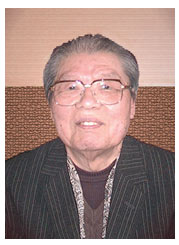
Few – if any – persons go through the Japanese educational system without frequently encountering a concept known as hensachi
 – a term that could be translated as "standardized rank score". Moreover, many parents in Japan feel a keen mixture of anxiety and/or pride regarding the hensachi rankings of the schools their children attend. Though it might be hard for young folks to imagine, standard rank scores did not become widespread in Japan until the mid-1960's. Within a short span of time, this concept infiltrated many secondary and tertiary educational settings to became a de facto measure of scholastic attainment and some even maintain, personal worth. In the Japanese context, hensachi signifies far more than a statistical formula – it also represents a pervasive social myth that personal ability can be summed up through a single equation which set school admission decisions. – a term that could be translated as "standardized rank score". Moreover, many parents in Japan feel a keen mixture of anxiety and/or pride regarding the hensachi rankings of the schools their children attend. Though it might be hard for young folks to imagine, standard rank scores did not become widespread in Japan until the mid-1960's. Within a short span of time, this concept infiltrated many secondary and tertiary educational settings to became a de facto measure of scholastic attainment and some even maintain, personal worth. In the Japanese context, hensachi signifies far more than a statistical formula – it also represents a pervasive social myth that personal ability can be summed up through a single equation which set school admission decisions.
 In this interview, we talk with a person responsible for the widespread adoption of standard rank scores in Japan. Born in 1928 in Nagano prefecture, Shozo Kuwata graduated from what's now known as Shinshu University in 1950. He worked as a school teacher in the Kanto region of Japan from 1950 to 1963. For 17 years after that he worked at a private educational research institute. This interview was conducted on March 29, 2010 near his home in Yokohama. The original Japanese version of this interview is available at
http://jalt.org/test/PDF/Kuwata-j.pdf.
In this interview, we talk with a person responsible for the widespread adoption of standard rank scores in Japan. Born in 1928 in Nagano prefecture, Shozo Kuwata graduated from what's now known as Shinshu University in 1950. He worked as a school teacher in the Kanto region of Japan from 1950 to 1963. For 17 years after that he worked at a private educational research institute. This interview was conducted on March 29, 2010 near his home in Yokohama. The original Japanese version of this interview is available at
http://jalt.org/test/PDF/Kuwata-j.pdf.
|


 PDF Version
PDF Version
